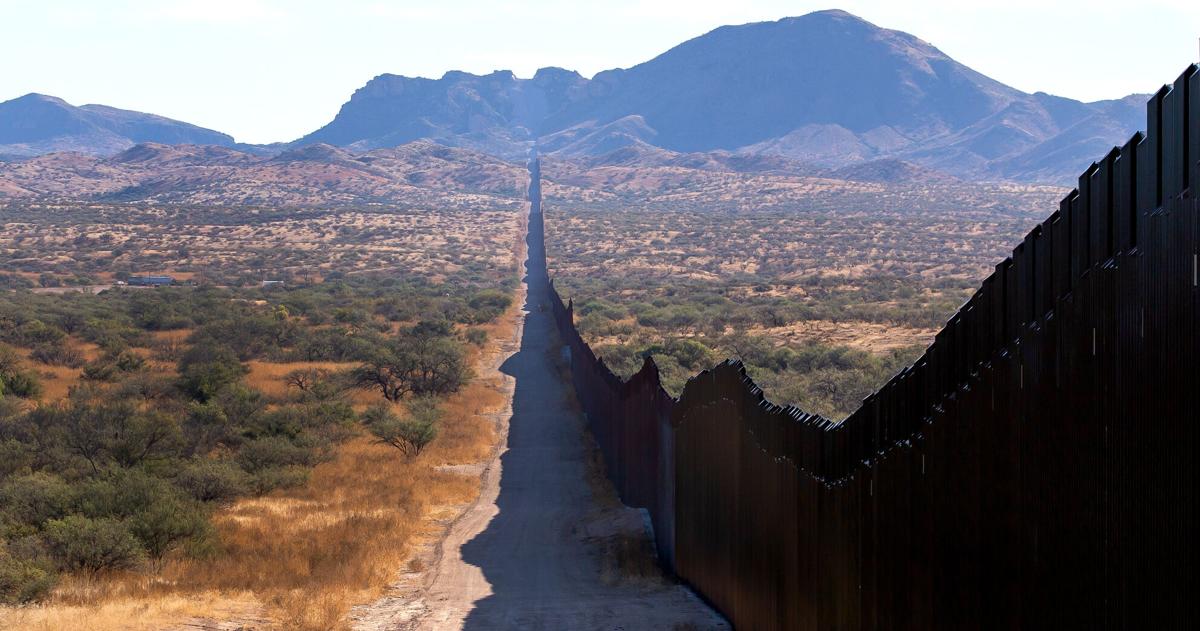Borderwallapalooza — that’s the name of an event that vigilantes on the Southern Arizona border are planning for Fourth of July weekend in a national refuge, which seems to be legal as long as it stays on federal land within 60 feet of the border.
The small group of men recently were camping along the border wall near Sasabe. They are promoting what they’re calling a “social gathering to bring awareness to the exploitation of trafficked immigrant children,” in Buenos Aires National Wildlife Refuge, from July 1-4.
The men, some of whom were recently written about in the New York Times, promote QAnon and a number of other conspiracy theories.
A website dedicated to the event says musicians and vendors are to be announced and that attendees should bring “anything you would want to be comfortable to camp out.”
“It’s official please help get it out so we can raise as much awareness as we can and get a few thousand people here to shine light on these kids that are being trafficed (sic) through the border,” an organizer posted on social media.
The place where the men had been camped, before recently leaving but saying they would be back, is in the refuge but actually on the Roosevelt Reservation, federal land that runs along much of the U.S.-Mexico border.
Camping is allowed on most federal lands as long as it “does not conflict with other authorized uses or in areas posted ‘closed to camping,’” according to the Bureau of Land Management.
Although Buenos Aires National Wildlife Refuge laws and regulations say people are only allowed to camp in designated spots, both the BLM and the U.S. Fish and Wildlife Service, which oversees the refuge, said the 60-foot-wide strip of land along the border in the refuge is managed under jurisdiction of U.S. Customs and Border Protection.
Customs and Border Protection would only say it is aware of the event, along with a boilerplate response that it “encourages” people planning activities in remote areas or locations where illegal cross-border activity occurs to let CBP know what they’re doing.
Certain types of interactions with migrants could result in prosecution, the agency said, such as “providing transportation or other assistance to migrants that may be viewed as furtherance of illegal entry.”
Videos posted on social media show the men talking to migrants who crossed the border through a gap in the wall where the men were camping. The men speak with authority in the videos to groups that are mostly children and teens. Often knowing only a few words in Spanish, the men tell the migrants to speak into the camera and to give their name, age, country of origin, the state they’re traveling to and the phone number of their U.S. sponsor. They tell children wearing masks to remove them.
Most migrants intending to seek asylum have a family member or friend in the U.S. who becomes their sponsor when they enter the country.
Humanitarian aid workers say the men have collected hundreds of these phone numbers and they are concerned what they plan to do with the information.
The men were calling Border Patrol after collecting information from the migrants and sometimes giving them food, bibles and other small items.
In the past, humanitarian aid workers have been arrested and prosecuted for various crimes they were later acquitted of after providing migrants with supplies such as blankets and water.
Whether what the men are doing is legal is a complicated question, said Guadalupe Correa-Cabrera, a professor at George Mason University, whose areas of expertise include Mexico-U.S. relations, organized crime, border security and human trafficking.
The legality of asking questions of and publicizing the personal information of vulnerable children would be a question for the courts, she said.
“I have the right to ask questions of other people, and you have the right to respond or not,” Correa-Cabrera said. “But they are doing this with children who are in a vulnerable situation, who are asylum seekers, and that makes the decision in this regard, or the analysis, much more complex.”
Also, publicizing that personal information when there is a portion of the population with anti-immigrant sentiments could put the children and sponsors at risk, she said.
As far as whether children coming across the border are being sex trafficked, which is what the men claim, Correa-Cabrera said that is a concern though there hasn’t been enough research done to produce evidence.
Typically when migrant children go to a sponsor in the U.S., post-relief services are provided for a short period of time and then there’s no follow-up, she said.
“There’s not a very transparent mechanism to prevent trafficking,” Correa-Cabrera said.
Researching and dealing with trafficking of minors should not be done by people who don’t have the training and tools to do that work without victimizing the minors, she said.





